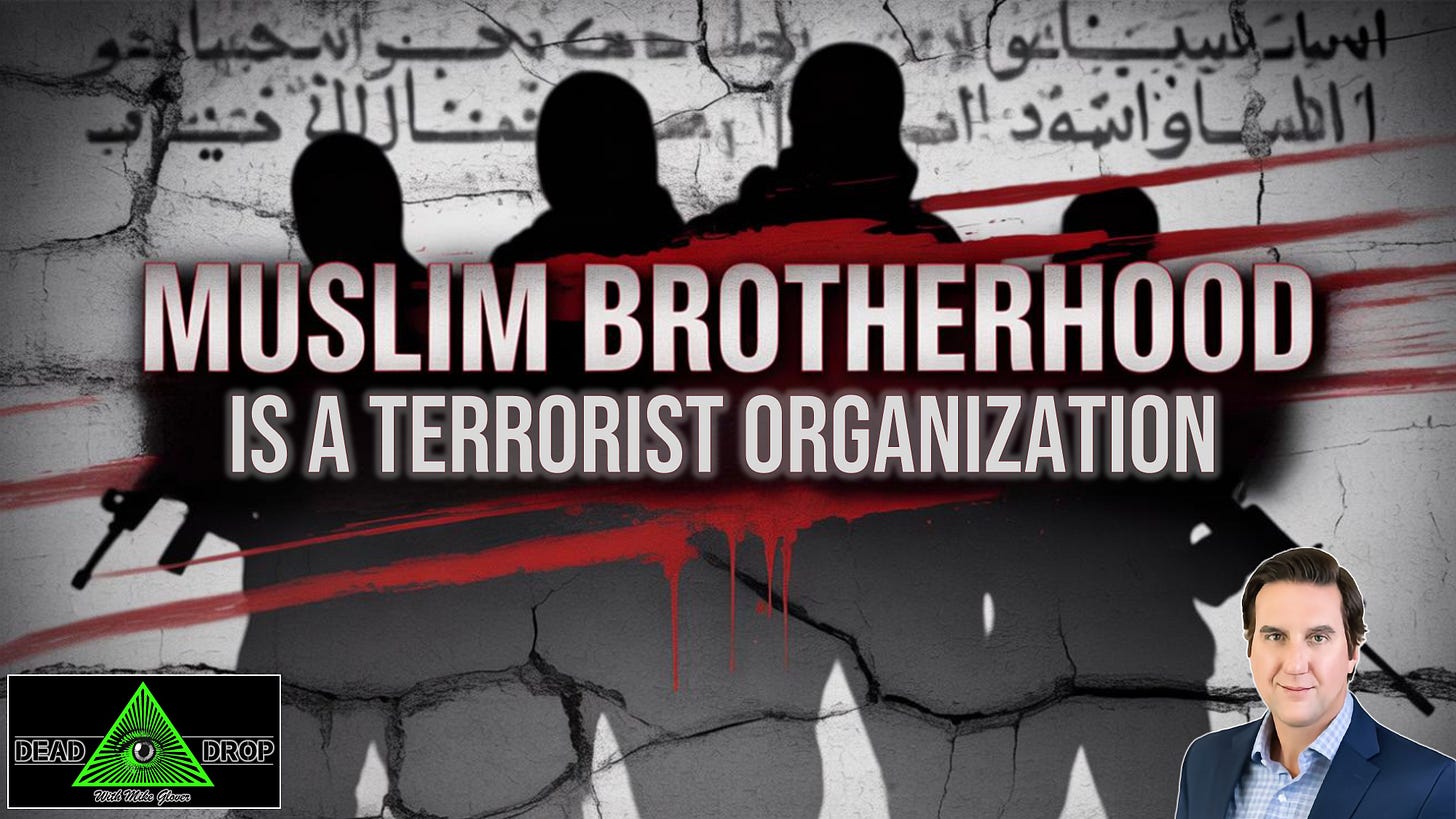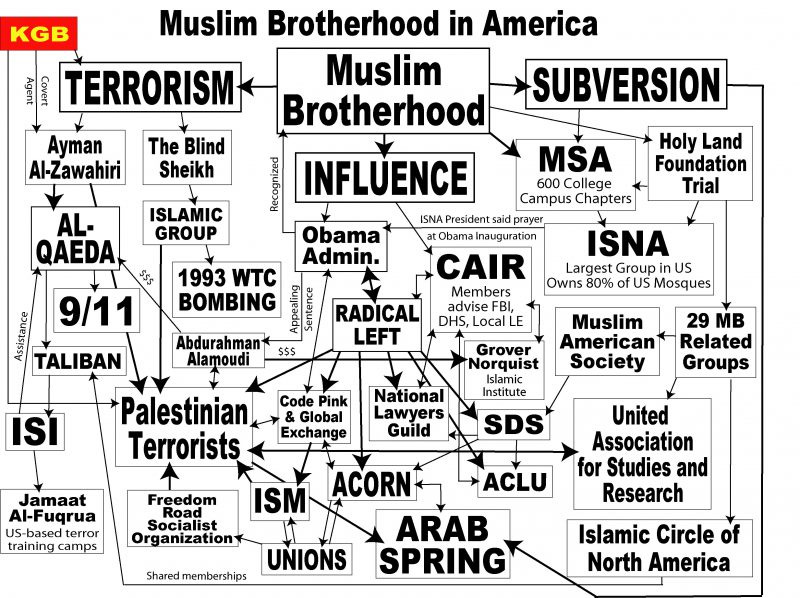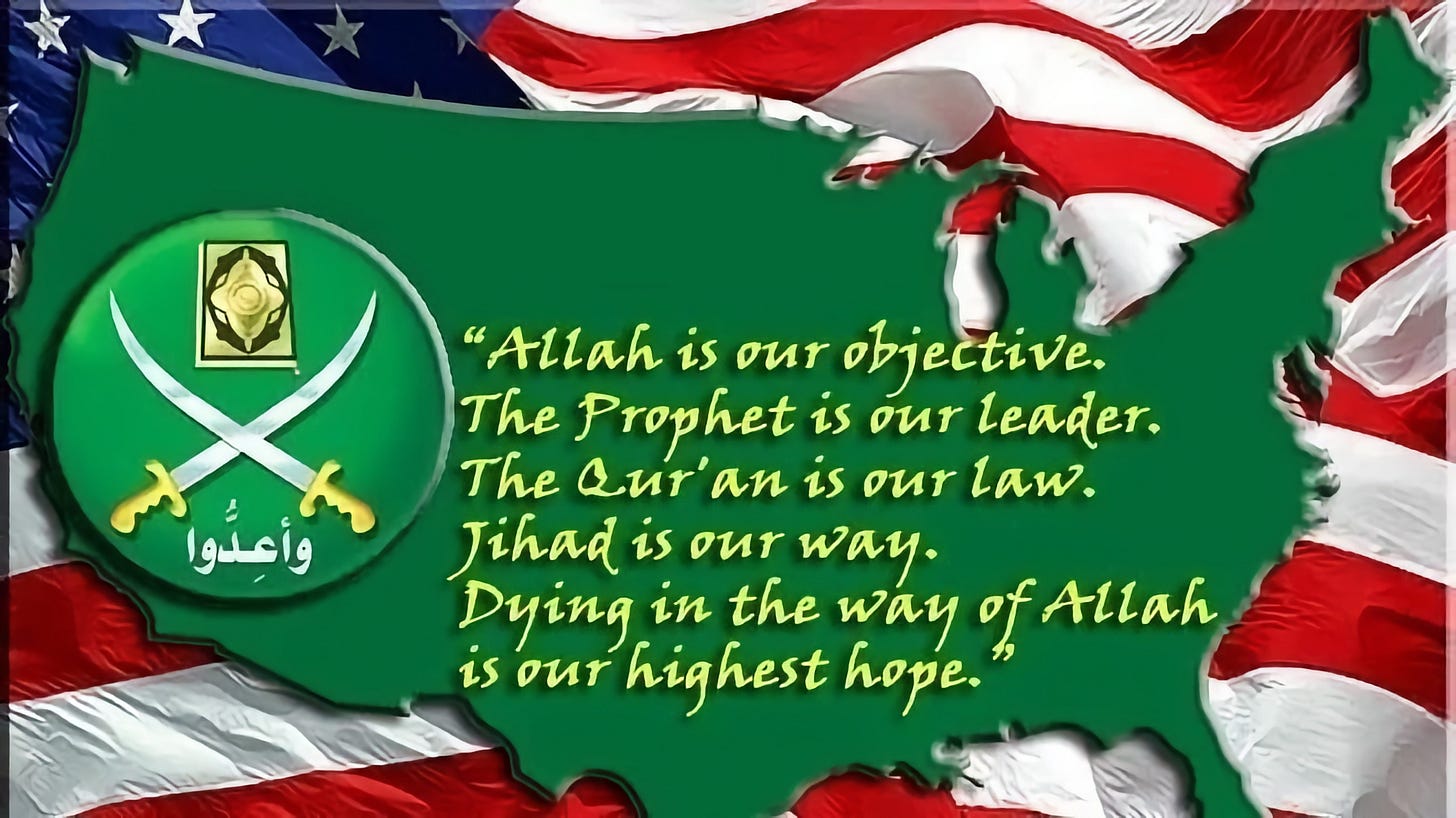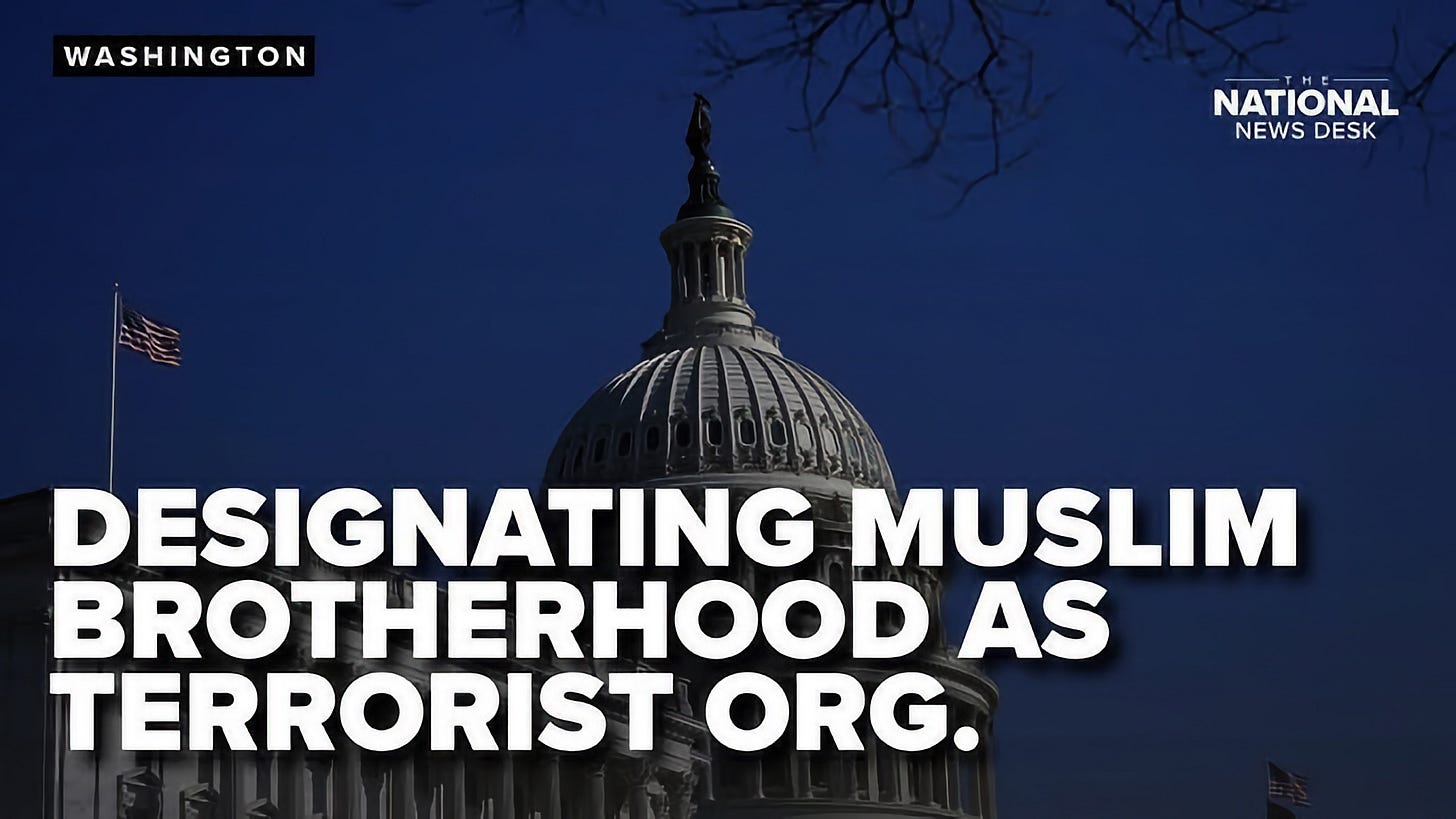Why the U.S. Must Designate the Muslim Brotherhood a Terrorist Group
A Clear Double Standard
The U.S. government has shown that it can act quickly when it wants to. In early 2025, Secretary of State Rubio, labeled all Mexican cartels as Foreign Terrorist Organizations. That decision was praised because the cartels are violent groups that smuggle drugs, carry out killings, and terrorize communities on both sides of the border.
Yet, when it comes to the Muslim Brotherhood, the government moves slowly and avoids making the same decision. For years, lawmakers and security experts have called for the Brotherhood to be fully labeled as a terrorist group. Some of its branches, like Hamas, have already been listed, but the main organization remains untouched. The question is simple: if we can label the cartels, why can’t we do the same with the Brotherhood? The truth is that it has less to do with facts and more to do with lawyers, politics, and people inside the State Department who continue to defend the group.
THE LEGAL EXCUSE
Officials say the law makes it difficult. To label a group as a Foreign Terrorist Organization, the Secretary of State must prove that it either carries out or plans terrorist attacks and that it poses a threat to Americans or U.S. security.
With the cartels, the case was clear. They commit murders, kidnappings, bombings, and push drugs like fentanyl into American communities. With the Brotherhood, officials argue that the situation is less straightforward. In places like Egypt and Gaza, Brotherhood-linked groups such as Hamas, HASM, and Liwa al-Thawra openly use violence. In other countries, however, the Brotherhood runs political parties, wins elections, and claims to reject violence. This mix gives lawyers the chance to argue that the case is not strong enough for a broad label.
Even Secretary of State Marco Rubio admitted in August 2025 that the U.S. would have to “show its work like a math problem” to survive legal challenges. But the bigger point is clear: the Brotherhood has been the seedbed for almost every major Sunni terrorist group in modern times. Using legal red tape as an excuse only delays action that should have been taken years ago.
THE DIPLOMATIC EXCUSE
Another reason often given is the risk of upsetting certain allies. Some countries, such as Egypt, Saudi Arabia, and the United Arab Emirates, have already declared the Brotherhood to be a terrorist organization. They see it as a threat to their governments and their stability. Others, like Qatar and Turkey, support the group and give it cover.
Qatar has been one of the biggest backers of the Muslim Brotherhood. It has provided money and shelter to members and used its media network, especially Al Jazeera, to spread the Brotherhood’s message. For Qatar, the Brotherhood is a tool to increase its influence in the region.
Under the leadership of President Erdoğan, Turkey has stood firmly with the Muslim Brotherhood. They have also backed Islamist groups in wars like the one in Syria, often working closely with Qatar. Even more troubling, Turkey is now backing Syrian leader Abu Mohammad al-Julani, a former senior al-Qaeda figure who today leads Hay’at Tahrir al-Sham (HTS). Although al-Julani has attempted to rebrand himself as a political statesman, he remains a jihadist at his core. Turkey’s support for him shows that it continues to empower Islamist movements that threaten stability across the region.
This raises a larger question that Washington has avoided for too long: why is Turkey still in NATO when it openly supports terrorist organizations? NATO is supposed to be an alliance built on shared security goals and mutual defense. Yet one of its key members is backing the very kinds of groups that NATO was created to stop. This contradiction weakens the alliance, confuses U.S. policy, and sends a dangerous message to both allies and enemies.
Some in Washington say labeling the Brotherhood could strain relations with both countries. But this excuse does not hold up. The U.S. has already labeled Hezbollah and the Iranian Revolutionary Guard Corps as terrorist groups, even though those decisions caused diplomatic problems. If we are serious about fighting terrorism, then we cannot let fear of upsetting certain partners stop us from acting.
THE REAL PROBLEM INSIDE THE STATE DEPARTMENT
The real reason for delay is inside our own government. For decades, many in the State Department have defended the Brotherhood. They claim it is a “moderate” Islamic movement that can balance against more extreme groups. This idea has shaped U.S. policy for years and created resistance to any effort to call the Brotherhood what it really is.
When Congress pushes for action, these officials slow roll the process, water it down, or block it entirely. This is not careful diplomacy. It is bias. The problem is made worse by the fact that the Muslim Brotherhood has wealthy and influential members inside the United States, some of whom have cultivated connections within the government itself. These ties provide the group with cover and make it harder for lawmakers to take strong action. This has allowed the Brotherhood to keep growing its networks, spreading its ideology, and inspiring new radicals around the world.
CONCERNS AT HOME
Some groups inside the U.S. worry that labeling the Brotherhood would unfairly harm American Muslims or charities. They fear law enforcement would go too far and target innocent people, much like what happened under the Patriot Act.
These concerns matter, but they cannot be allowed to overshadow the larger truth. The Brotherhood is the root from which many violent jihadist movements have grown. Al-Qaeda, ISIS, and other groups trace their ideas back to the Brotherhood. Fighting the offshoots while protecting the source makes no sense.
The dirty little secret is that any seasoned federal law enforcement officer who works in counterterrorism knows that the Brotherhood’s networks inside the United States radicalize potential extremists, provide financial support to terrorist groups overseas, and may even assist cells operating within our own borders.
WHY THE LABEL MATTERS
Labeling the Muslim Brotherhood as a terrorist group would have powerful effects. It would cut the group off from international banking systems, making fundraising much harder. It would give law enforcement more tools to pursue criminal cases inside the U.S. Furthermore, it would bring clarity by sending a clear message that America sees the Brotherhood as a threat, not as a “moderate” movement.
We cannot claim to fight terrorism while giving the organization that inspired so much of it a free pass.
CONGRESS KEEPS PRESSING
Congress has continued to push forward. In July 2025, Senators Ted Cruz and Tom Cotton introduced the Muslim Brotherhood Terrorist Designation Act. The bill would require the Secretary of State to review different Brotherhood branches every year and label the ones tied to terrorism. This approach would eventually build the case to label the entire group.
Secretary Rubio has said the government is preparing to label some Brotherhood affiliates. But many believe this is simply more delay, the same piecemeal approach that avoids the real problem.
THE TIME FOR EXCUSES IS OVER
The excuses must end. The law is clear enough. Diplomatic fallout is not a reason. And the bias inside the State Department cannot be allowed to block U.S. security any longer.
The Brotherhood is not just another Islamic movement. It is the parent of modern jihadism. Every time the U.S. delays, the Brotherhood gains more ground.
If America truly wants to end terrorism, we must start at the root - and that root is the Muslim Brotherhood. This organization has provided the ideology, networks, and financial lifelines that feed global jihad.
We had no hesitation in labeling the Mexican cartels as terrorists because they were killing Americans and destroying communities. The Brotherhood is no less dangerous. The time has come to show the same courage and clarity. This is not about comfort, politics, or diplomacy. It is about one thing only: protecting Americans. That must always be the first priority of any policy we pursue.
~ Ryan Geho
1. Los Angeles Times - Label the Muslim Brotherhood’s branches as terrorist organization (2025)
2. Mondoweiss - Power & Pushback: Rubio suggests he’ll target CAIR over Palestine advocacy (2025)
3. Jewish News Syndicate (JNS) – Muslim Brotherhood terror designation in the works (2025)
4. New York Post – Time to get real about the Muslim Brotherhood’s Mideast menace (2025)
5. The Washington Institute – The Muslim Brotherhood Is the Root of the Qatar Crisis (2017)






